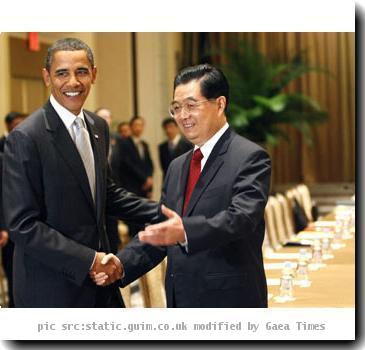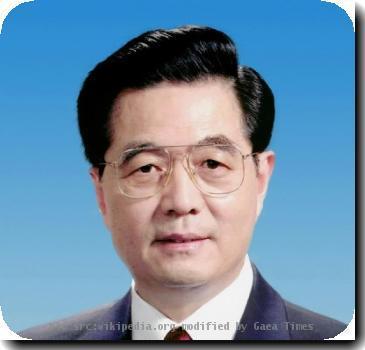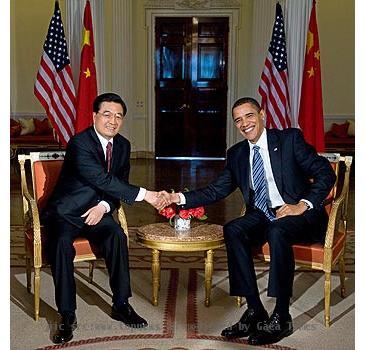Book by author threatened with jail says Chinese premier’s reform rhetoric just an act
By Gillian Wong, APMonday, August 9, 2010
Book says Chinese premier is no reformist
HONG KONG — A book by a Chinese dissident author who says he was threatened with imprisonment argues China’s premier is not a reformist nor a man of the people, as popularly perceived at home, but a mediocre technocrat who rose to power through good acting.
Excerpts of “China’s Best Actor: Wen Jiabao,” seen by The Associated Press ahead of publication, show how the writer Yu Jie hopes to contrast the Chinese premier’s populist rhetoric with the hard-line actions and policies of the government he and President Hu Jintao lead, in which critics are routinely punished.
While the book is based on publicly available material, it puts forth arguments not openly expressed in China and is a reflection of the skepticism many dissidents feel toward the government’s professed policy of putting the people first.
The book — to be published Aug. 16 in Hong Kong — is a collection of essays in which Yu argues that although Wen frequently touts a reformist agenda that promises to improve the lives of the people, it is merely empty rhetoric.
“Even today there are still many people who believe Wen is ‘the people’s good premier’ who can’t act on his plan because of pressure from certain interest groups,” Yu writes in one essay. Yu says Wen could not have risen to power after the June 4, 1989, government crackdown on pro-democracy demonstrators if he truly believed in political reform.
The writer says Hu and Wen are “two sides of the same coin” and their partnership is meant to complement each other’s strengths.
“Hu’s personality is calm and somber and he likes to give orders from behind the curtain. Acting on the stage is not his expertise. Wen in the meantime supplements Hu’s inadequacy. He likes going down into mines, visiting farmhouses and shedding tears,” Yu writes.
Wen often flies around the country to soothe crises and console disaster victims. On Sunday he flew to northwestern Gansu province where more than 120 people were killed by mudslides.
After word of his book spread online, police detained Yu last month and questioned him for more than four hours, mostly about the book’s contents, the writer said in an earlier interview.
Yu said his interrogators told him he could be imprisoned like Liu Xiaobo, an intellectual sentenced to 11 years in December for “inciting subversion.” China routinely uses vaguely worded subversion charges to jail people it considers troublemakers.
The Foreign Ministry and the Ministry of Public Security did not immediately respond to a request for comment Monday.
Yu points to Wen’s web-chats with Chinese citizens, in which the premier says Chinese citizens are all entitled to freedoms and rights as guaranteed by the constitution, and law and national development should be aimed at meeting the people’s needs.
The writer asks: Why then are the rights of Liu Xiaobo and Tan Zuoren, two jailed dissidents, not being protected? “They are China’s good citizens, not the country’s enemies,” he writes.
Yu’s position is controversial even among others punished for exercising freedom of expression. Li Datong, a veteran state newspaper journalist forced from a top editing job for reporting on sensitive subjects, said Yu was being unfairly harsh.
“Among the top Chinese leaders, who else speaks about democracy? Who else speaks about universal values and freedom?” Li said in a phone interview. “Wen is the only one. He’s just a technocrat who has little power to affect power decisions. What else do you expect from him?”
Yu writes that he hopes the book will encourage others to see that criticism of one’s leaders should not be seen as a crime. “Without religious freedom or freedom of expression, wouldn’t living be like a walking corpse?”
Online:
Publisher’s website: bit.ly/bsbn9D
Tags: Arts And Entertainment, Asia, Books And Literature, China, East Asia, Greater China, Hong Kong, Hu Jintao


